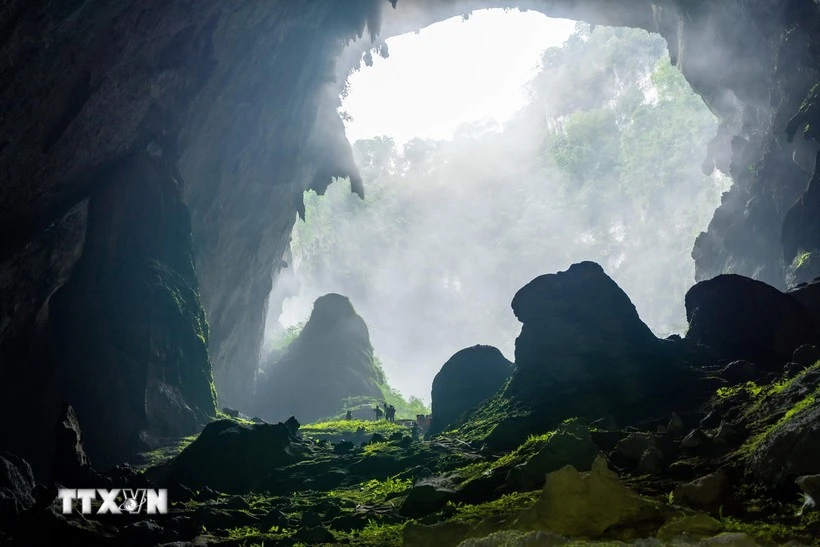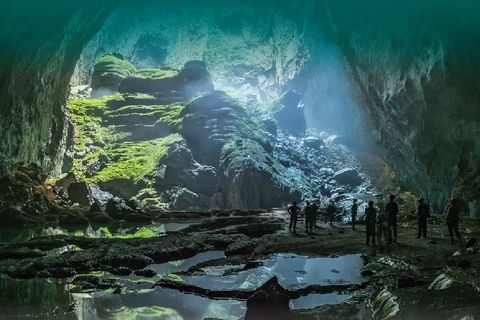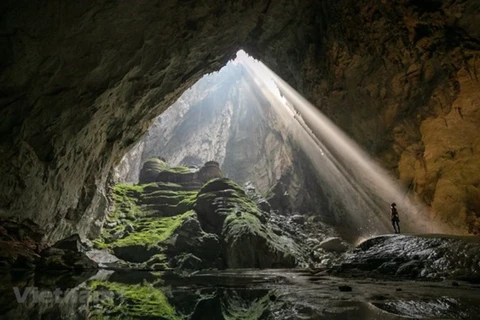
Hanoi (VNA) - The South China Morning Post (SCMP) of Hong Kong (China) has recently honoured Son Doong cave in Vietnam's central province of Quang Binh as one of the seven most beautiful underground attractions in the world.
The SCMPs article looks back at the journey to discover the world's largest cave of a local farmer named Ho Khanh.
During a jungle expedition in 1991, Khanh stumbled upon the cave entrance. However, the sound of rushing water and strong gusts of wind deterred him from venturing further inside. On subsequent attempts, he was unable to remember the location of the "mysterious" cave.
In 2007, Khanh joined a royal expedition team of the UK in their search of new caves in Phong Nha – Ke Bang, and he guided them to search for the cave but they could not find it. In 2008, Khanh finally found the cave entrance and contacted the UK expedition team. Upon measurement, explorers confirmed that the cave was 5km long.
In addition to its underground river systems, thriving jungle ecosystem, 400-million-year-old fossils, and spectacular geological formations, Son Doong cave is home to several species of plants and animals that exist nowhere else on earth.
In 2018, a team of UK cave experts discovered that Son Doong cave is at least 30% larger and much deeper than previously reported.
In addition to Vietnam's Son Doong cave, the list of the seven most beautiful underground attractions in the world includes Tham Luang cave (Thailand), the Paris Catacombs (France), the Cold War Tunnel (Albania), the Reed Flute Cave (China), Malinta Tunnel (the Philippines), and the National Coal Mining Museum of the UK./.






















